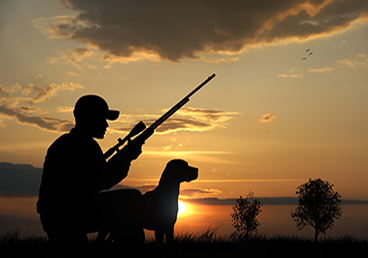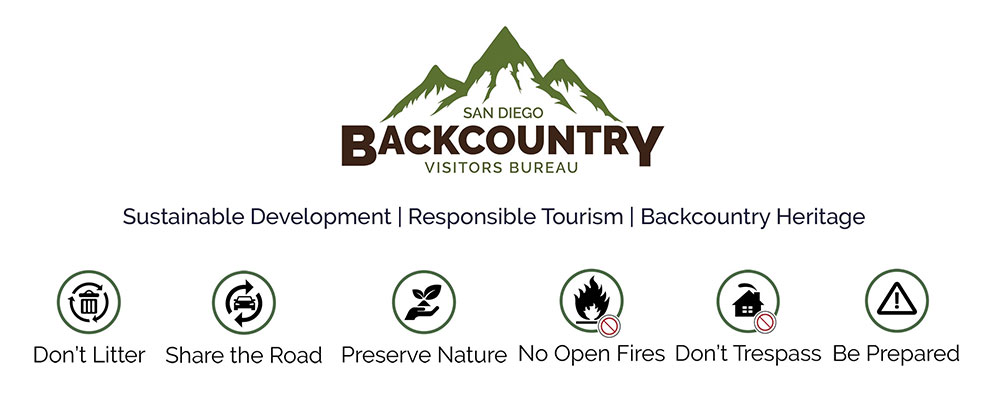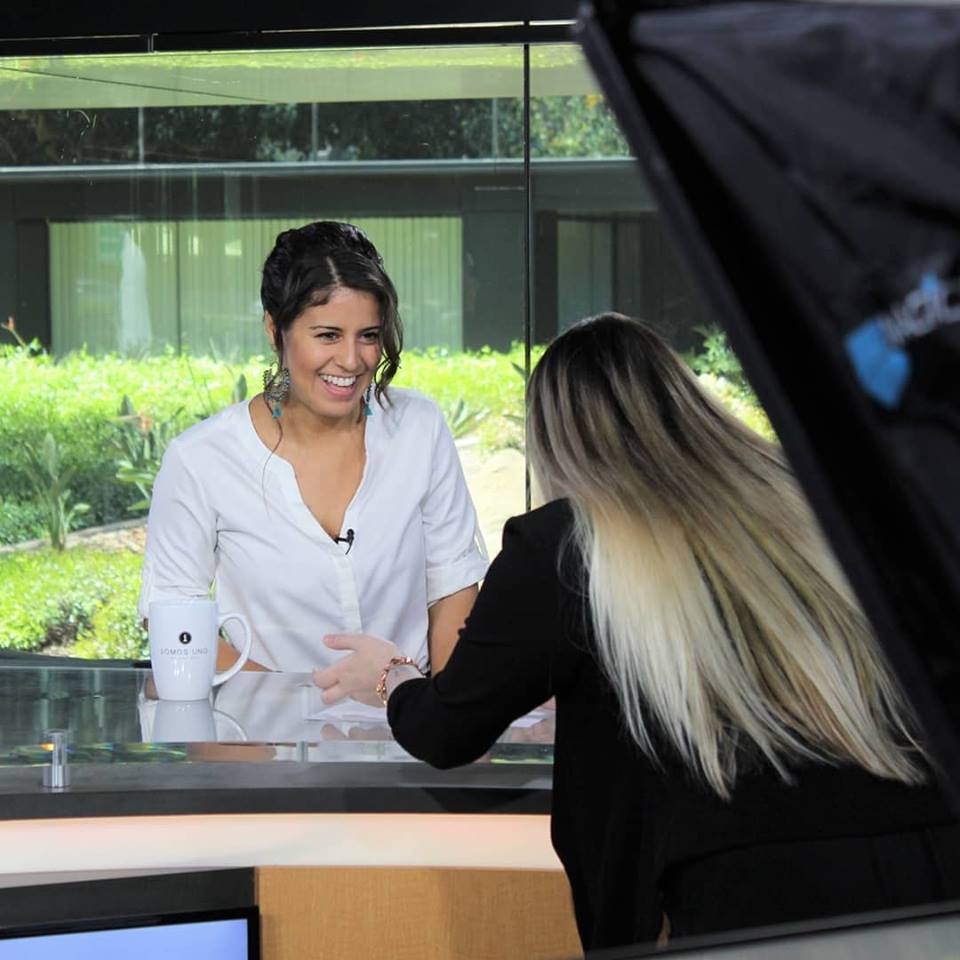Fort Cross is a family owned and operated outdoor education center with a focus on hands-on activities. Originally centered around living history, they also offer programs that involve music, art, survival skills, team building, and agriculture workshops. Jesse and Doreen Cross have created a truly unique, educational & hands on experience on their beautiful 12 acre property!
Activities include archery, tomahawks, slingshot range, petting zoo, music, art, agriculture, hayrides & more! Stop by Fort Cross Old Timey Adventures the next time you're in Julian.
Hidden in the mountains of San Diego, the Julian Mountain Spa is a boutique day spa with “cozy cabin meets zen” atmosphere. Conveniently located on the main street, just above Apple Alley Bakery, we provide a peaceful retreat for healing and relaxation with the irresistible and ever so beckoning smell of apple pie as an extra benefit. We offer more than a dozen massage including couples massage and bodywork modalities as well as Traditional Chinese Medicine treatments, including acupuncture & herbal medicine, holistic skin care, Sound healing and Reiki.
Fort Cross is a family owned and operated outdoor education center with a focus on hands-on activities. Originally centered around living history, they also offer programs that involve music, art, survival skills, team building, and agriculture workshops. Jesse and Doreen Cross have created a truly unique, educational & hands on experience on their beautiful 12 acre property!
Activities include archery, tomahawks, slingshot range, petting zoo, music, art, agriculture, hayrides & more! Stop by Fort Cross Old Timey Adventures the next time you're in Julian.
 The backcountry offers many small game hunting opportunities that include; rabbit, squirrel, wild hog and birds species such as dove, pheasant and turkey. We have an abundance of wildlife in the area and please be respectful and show consideration while hunting in the area. Hunting with a firearm is allowed in the Cleveland National Forest, but not in the Laguna Mountain Recreation Area. If you're planning on hunting with a firearm for small game in the Cleveland National Forest, make sure you are outside of the Laguna Mountain Recreation Area.
The backcountry offers many small game hunting opportunities that include; rabbit, squirrel, wild hog and birds species such as dove, pheasant and turkey. We have an abundance of wildlife in the area and please be respectful and show consideration while hunting in the area. Hunting with a firearm is allowed in the Cleveland National Forest, but not in the Laguna Mountain Recreation Area. If you're planning on hunting with a firearm for small game in the Cleveland National Forest, make sure you are outside of the Laguna Mountain Recreation Area.
Alternatively, you can take Engineer road to the Boulder Creek area which also offers many hunting opportunities. Make sure that you stay ourt of the Inaja Indian Reservation and areas marked no trespassing. Please be aware that these areas are actively patrolled by rangers and poachers will be prosecuted to the full extend of the law. You must have a valid hunting license and adhere to all hunting laws as prescribed by the California Department of Fish and Wildlife. We have a zero tolerance policy for poaching and illegal hunting activities.
The Volcan Mountain Foundation (VMF) owns and manages nearly 400 acres on Volcan Mountain, adjacent to preserves managed by San Diego County Parks & Rec, and the San Dieguito River Park (Coast to Crest Trail). VMF's Volcan Mountain Nature Center, near the headwaters of Santa Ysabel Creek, is the focal point of VMF's Education-Outreach and Resource Management activities. When visiting the nature center, the focus is on getting outside and discovering and exploring the unique natural resources that the Volcan Mountain range provides to the region of San Diego County and its residents and visitors.
Facilities include the Sky Island Trail and Viewpoint, the Watershed Trail, and the Outdoor Classroom in the lower grove. In 2013-2014 a Native Plant Nursery was developed with generous funding from a San Diego Gas & Electric Environmental Champions grant. The main building at the Nature Center serves as an orientation point, indoor classroom and interpretive facility for local natural and cultural history. Significant infrastructure upgrades for the building were made possible by generous funding through an Environment Grant from The San Diego Foundation.
Planning a Visit to VMF's Volcan Mountain Nature Center
Volcan Mountain Foundation staff and volunteers play an important role as ambassadors to discovering Volcan Mountain. Check out VMF's Events Calendar for regularly scheduled discovery hikes, informative presentations and volunteer trainings at the Nature Center and County preserves on and around Volcan Mountain. Teachers, youth leaders, and groups of all ages interested in discovering Volcan Mountain are encouraged to check out VMF's Outdoor Education page and contact VMF Administrative Assistant to schedule a customized visit (760-765-2300 or This email address is being protected from spambots. You need JavaScript enabled to view it.). At this time there is no general public access to VMF owned and managed property.
In the Fall of 1984, a group of volunteers who had been working on an individual basis decided to form a volunteer organization. They had been volunteering with minimal supervision and guidance from the Forest Service. The Forest Service had many needs which it felt could best be met by organizing a volunteer association. The Laguna Mountain Volunteer Association was officially born in the spring of 1985.
Operating under Forest Service standards, the volunteers have been providing quality recreation experiences and educating the visitors to the Descanso District of the Cleveland National Forest. In 1986, LMVA officially incorporated as the Laguna Mountain Volunteer Association, Inc, a California 501 (c) (3) accredited non-profit organization. Our core mission and purpose over the years has been sustained by a membership with common goals and a deep appreciation of our natural resources and the beauty of our local mountains.
LMVA members staff the Visitor Information Center (VIC) and handle sales of Adventure Passes, books, maps, and forest-related items, and answer questions. The VIC is open on Friday afternoon and all day Saturday and Sunday throughout the entire year. In addition to wildlife displays, the Center contains information on the indigenous Kumeyaay people, rock and mining displays, and information on Fire Ecology. People from all over the world have stopped in. A map in the VIC has pins stuck on the home countries of VIC visitors. There is even a pin on Antarctica! Whether engaging youngsters or adults, the VIC provides lots of opportunities to learn, share and interact with our Forest visitors. To speak with a volunteer during open hours, please call 619-473-8547.
The Julian Pioneer Museum houses an amazing array of artifacts depicting the history of Julian. Prior to the founding of Julian, native American villages were scattered throughout the area. Our Native American display is impressive. Historical artifacts throughout the museum provide a visual narrative of Julian history from 1869 to the turn of the last century. See how Julian labored, traveled, cooked and clothed . At eye level and from above, mounted animals, representing species to be found in Julian, are everywhere. Housed within the restored walls of the Treshil blacksmith shop, the Julian Pioneer Museum is the flagship of Julian history. The core of the Julian Pioneer Museum building was built by Joseph Treshil in 1888 to house his blacksmith shop. Later, it became the brewery of Peter Mayrhoffer. Then, in 1899, it became Christian Grosskopf’s blacksmith shop. The 1.5 foot thick walls, made from native Julian Schist, surround the central display area.
The Museum is located at 2811 Washington Street (the corner of Washington and Fourth streets), just as you enter Julian on Highway 78. Our phone number is: 760-765-0227 Our current regular hours are: 10am to 4pm Thursday, Friday, Saturday, and Sunday. *This museum is run by volunteers. Sometimes we are unable to open on our regular days. Call to confirm we are open…just in case. We do open by special appointment for schools, or other large groups.

Our community has certain standards in regards to the conservation of our environment & ensuring the safety of our town. We have reasonable expectations of our visitors, which are very necessary for their safety & ours. That's what responsible tourism is all about. Responsible tourism is defined as tourism that minimizes negative social, economic & environmental impacts, generates greater economic benefits for local people & enhances the well-being of host communities. Visitors need to be prepared & act responsibly while in the backcountry. A few simple precautions can ensure a safe & pleasurable trip.
![]() The backcountry is remote & rural environment at elevations of up to 6,000 feet. You're likely to get winded much faster than normal at these higher elevations. Be extra careful if doing strenuous activity & drink plenty of water. Allow plenty of time for driving mountain roads and hiking over rugged terrain.
The backcountry is remote & rural environment at elevations of up to 6,000 feet. You're likely to get winded much faster than normal at these higher elevations. Be extra careful if doing strenuous activity & drink plenty of water. Allow plenty of time for driving mountain roads and hiking over rugged terrain.
Weather can change quickly up here & sudden storms are common in the summer. Be prepared! Consider taking raingear, a hat, & wearing sturdy shoes or hiking boots.
Snowfall is common in the winter months. The road can become even more dangerous under these conditions. Check the forecast & travel advisory before coming.
High temperatures are common in the summer, but can occur throughout the year. Heat exhaustion & heat stroke can result from continued exposure to high temperatures & inadequate or unbalanced replacement of fluids. Adults require two quarts of water per day & four quarts or more for strenuous activity at high elevations.
We have very limited facilities like gas stations & public restrooms. You can't always count on cell service or GPS to be working up here. Use a forest recreation map, topographic maps & guides. Get advice from experienced backcountry travelers.
If you are hiking, backpacking, or exploring at any time of year, take someone with you & make sure someone else knows your exact travel plans.
![]() Safe driving requires alertness. The backcountry road system is different from streets & highways. Road conditions vary & roads are used by a variety of travelers. Licensed high clearance vehicles, recreational vehicles, horseback riders, mountain bikes & hikers are common sights on the back roads.
Safe driving requires alertness. The backcountry road system is different from streets & highways. Road conditions vary & roads are used by a variety of travelers. Licensed high clearance vehicles, recreational vehicles, horseback riders, mountain bikes & hikers are common sights on the back roads.
The route leading up to the backcountry is a single lane windy mountain road. Drive safely & be extra cautious. Make sure you have a full gas tank & that your car is in optimal running condition. If you're driving slower or hauling a trailer for instance, pull over to the side when possible & make way for other passing drivers.
Winter Vehicle Travel - Snow conditions result in closure of some roads & highways over mountain passes. Tire chains may be required. Winter travelers should carry tire chains at all times and be prepared to spend long periods of time in the car. Carry blankets or sleeping bags, a shovel, water, food and other necessities, & travel with a full tank of gas.
![]() To protect the public safety in this very flammable environment, wildfire prevention measures are necessary. The greatest fire danger occurs in the summer & fall, but large fires have burned in every month of the year. Hot, easterly winds, known as Santa Anas, blow with great intensity each year, usually in the fall, but sometimes during the winter & spring months as well. These winds create extremely dangerous fire conditions.
To protect the public safety in this very flammable environment, wildfire prevention measures are necessary. The greatest fire danger occurs in the summer & fall, but large fires have burned in every month of the year. Hot, easterly winds, known as Santa Anas, blow with great intensity each year, usually in the fall, but sometimes during the winter & spring months as well. These winds create extremely dangerous fire conditions.
Because of the potential danger from human-caused fires, fire regulations are in effect in the backcountry all year long. Campfires are permitted only within grills & fire rings provided in developed campgrounds & picnic areas. All wood & charcoal fires are forbidden outside of these sites.
Fires are the #1 threat we face up here as a community. We're still recovering from the 2003 Cedar fire that destroyed hundreds of homes & acres of forest. This is a very real threat with life & death consequences. A cigarette butt or even the tiniest spark in the wrong place could ignite a fire that quickly gets out of control.
- Fire regulations are in effect in the backcountry all year long. The rules for open camp fires may vary from place to place. Ask if you don't know.
- Use good judgement. Don't light a fire on a windy day or near potential fuel source.
- Any open fire must be in a designated fire pits. Check the rules at your campsite before starting any fire.
- Never leave a fire unattended. Put it out completely if nobody will be attending it.
![]()
Littering is something our community takes very seriously. We will not tolerate it. DON'T LITTER. We're the environmental stewards of these regions & we're very passionate about its preservation. Trash items are unsightly & are a sign of human neglect & disregard for natural ecosystems. Garbage pollution has a big effect on the environment & can run into rivers & seeps into ground water. Plastics can be especially hazardous to wildlife. Depending on their form they can either be ingested, causing internal organ failure, or they can cause a slow strangulation.
![]() Please respect the rights of property owners. Never trespass onto private property. Many of the locals choose to live here for the peace, privacy & solitude these mountains offer. There are plenty of recreational areas at the lake, in the State Park, Cleveland National Forest & Laguna Mountain. If you're unsure about an area then it's probably best to keep out.
Please respect the rights of property owners. Never trespass onto private property. Many of the locals choose to live here for the peace, privacy & solitude these mountains offer. There are plenty of recreational areas at the lake, in the State Park, Cleveland National Forest & Laguna Mountain. If you're unsure about an area then it's probably best to keep out.
![]() By visiting our destination, you're already making a positive, environmental choice. We need the support of our guests to conserve the natural resources of the region. There are many things you can do to get involved like joining one of our workshops, being a responsible tourist while visiting the region and expanding your own personal knowledge about environmental conservation.
By visiting our destination, you're already making a positive, environmental choice. We need the support of our guests to conserve the natural resources of the region. There are many things you can do to get involved like joining one of our workshops, being a responsible tourist while visiting the region and expanding your own personal knowledge about environmental conservation.
- Shorten your showers and don’t leave water needlessly running.
- Take home items which are difficult to recycle here, such as batteries.
- Use energy wisely. Turn off all appliances and lights when not needed.
- Reduce plastic bottle waste. Try alternatives like biodegradable plastics.
- Don’t litter. If you find litter pick it up and dispose of it in bins
- Report violations of environmental laws
- Join one of our volunteer events
You're likely to encounter a lot of wildlife up here. Mule deer, turkeys & various birds of prey are a common sighting. Keep your distance from all wildlife. Never feed any animals or leave food laying around.
Rattlesnakes are encountered in the backocuntry, especially during the warm summer months. Snakes are defensive & will rarely attack unless provoked. When going through thick underbrush be alert, walk slowly and give snakes ample time to move out of the way. Use a hiking stick and wear high top hiking shoes. Stay on clear paths as much as possible. Be careful where you place your feet & hands at all times.
Mountain lions inhabit about half of California generally in areas where deer are plentiful. As their population recovers and increases, so have their contacts with humans who venture into their territory. Following are a few tips from the California Department of Fish and Game:
- Always keep children close. Don't let them run off.
- Never approach a lion.
- Never run from a lion. It might chase you. Stand, face the animal, and make eye contact.
- Pick up small children without bending or turning away from the lion.
- Try to look big. Raise your arms, open your jacket. Make noise.



